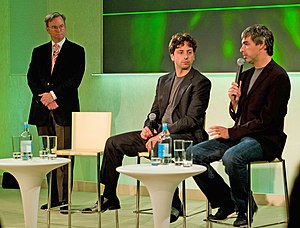Anyone who wonders why we don’t have more start-ups hasn’t noticed that it is the hardest job in the world. You start from nothing. One team I was working with in the spring of this year just oozed joy when they had earned their first $49 from someone they didn’t know. Getting to this point…building the beta and the early ideas had taken nearly two years of Pizza-my-Heart-filled moments. They had sweated pixels that created ease of use, and the website colors that deemed them friendly, and the customer requirements of a marketplace. They had taken classes together and work on 16 different (major) versions of the business plan. They had effectively dragged this idea out of their own hearts, into the field, and were slowly pushing it along. This team had a lot to be proud of.
Yet, now it was time to add another few key roles. One of the new additions wanted to be called a “founder”. Of course, this new person hadn’t lived the too-many-hours-to-be-calculated into the effort thus far. Isn’t it foolish to give this title to someone who hadn’t “earned it”, they asked?
What to do?
Just put yourself in the receiving end of this decision. If you were the one asking for the founder status, what would you want done? Feel that. That’s your realization that people care more for something when it’s “theirs” than when they work at someone else’s firm. It is the difference of working with people rather than working for people. It creates a different level of commitment.
Commitment can come from two places. The first, most often considered by those “in charge” include extrinsic stuff, like money, titles, organizational status, etc. But commitment also comes from intrinsic stuff like passion, purpose, and being able to using your talents well. And by saying it comes from two places, it’s important to note as Deb Lavoy recently did that it’s never an either-or proposition. To believe someone is simply doing their best because of money is to underestimate how humans actually function; reading Dan Pink’s work on Drive can help you understand that people are motivated by autonomy, mastery and purpose. And to believe that people can be driven solely by purpose when we all have rent to pay or shoes to buy underestimates how what we consume is also part of our identity. To get commitment from others involves find the mix of both extrinsic and intrinsic rewards.
Feeling invested matters. Did you know that Google made the first 100 employees founders, and some were made this after nearly 3 years of the initial concept and the “garage” moments? Yeah. 100. Looking back, as the company approaches its current size, it’s clear that those first 100 were founders of something much bigger. Google’s team understood this one truth: call early employees founders because you get them feeling invested and committed. If you fight to keep a small group in the founder tribe and everyone else, out of it, you are effectively being greedy by holding back something that costs you very little. However, if you give the power to as many people as want it, then you signal (and get) the kind of commitment that builds an organization for speed. That’s why the rule of thumb can be “speed, over greed”.
If we don’t have velocity inside firms, we get outpaced in this market place. (Remember the talk I did on Heisenberg Uncertainty principle?)
Now you might think that this rule of ‘speed, over greed’ only applies to entrepreneurs. Not so. There’s a lesson in this for everyone. People care for something that is theirs. This gives them the desire to commit. When they feel involved, they give their best. Even if you cannot give the fancy-schmancy title of “founder”, you can give people one of the following: a voice, visibility in the process, perhaps a vote, or a veto. (For the purpose of this point, I am assuming you work in a place where you want to utilize the brains of your people vs. a manufacturing plant where people are simply another cog in the production process.) When you do this, you are saying to the people who are responsible for making things happen, that they are the ones who will make things happen. Funny, how that actually makes a difference. And how different it is then what is often done which is to say “you’re the one I hired to lead on x, but I made all the big decisions while you were out of the room.”.
We often do this wrong. We often invite people to have a seat at the table as if somehow we’re doing them a favor. But that’s not it. Inviting people to sit at the table holds in it an inherent demand, which is to say, participate, cause we need you. Don’t consider this as ‘nice’. Instead, recognize this as a ‘need’. Don’t ask people, if you just want them to do stuff brainlessly. But if you need their fully-alive creativity, energy, commitment to the purpose ahead, give people what they need to believe they have a voice in what happens.
Ask yourself this whenever you face this fork in the road: what will give your organization velocity in the end. What is it that causes commitment to the work? Are you trying to save money or time, or creating the velocity that will help your organization cross the finish line? Then, make the choice.
(Special thanks to Shannon Bergstedt without whose involvement this post wouldn’t be possible. She captured this notion of “speed over greed” from our Stanford ‘The Boardroom’ Course that was co-taught with some incredibly talented venture leaders earlier this year.)





